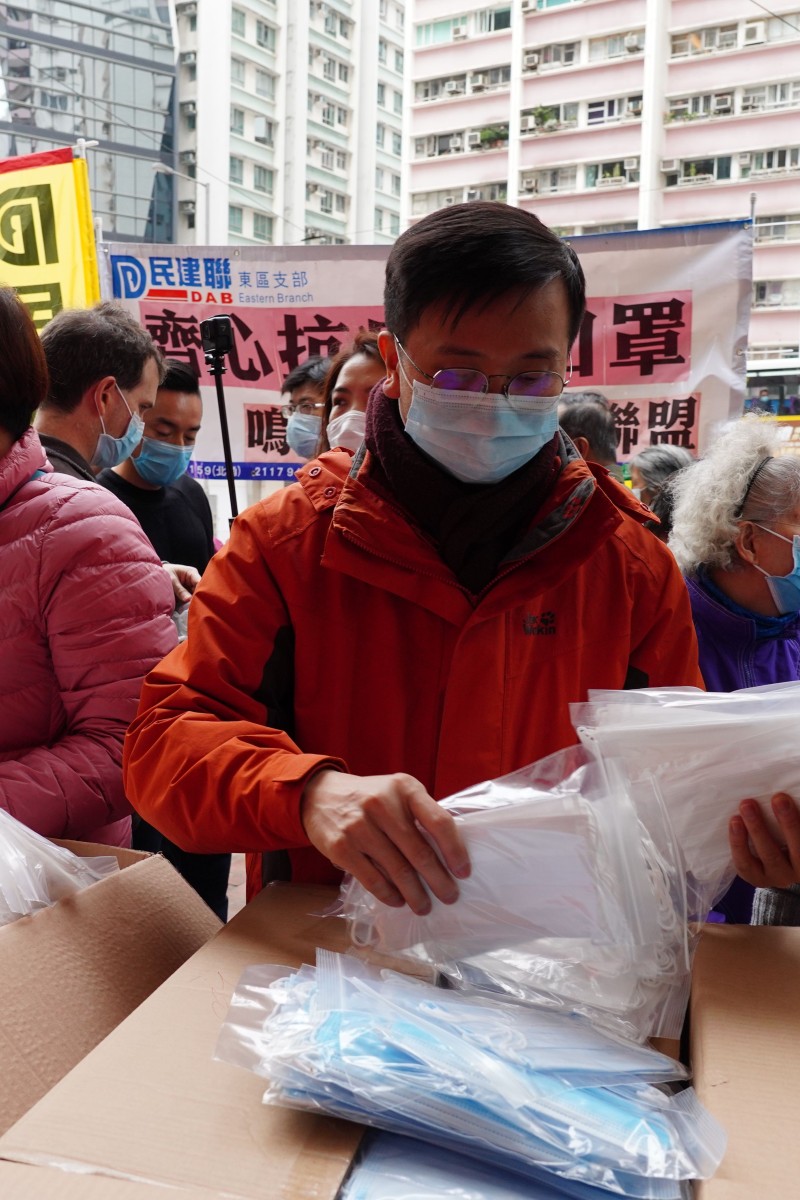
Local non-governmental organisations have also started handing out surgical masks to those living in subdivided flats and temporary shelters
 The strong demand for masks and limited supply means people, especially the poor are having trouble getting enough.
The strong demand for masks and limited supply means people, especially the poor are having trouble getting enough. Local non-governmental organisations have started handing out surgical masks to low-income families and students in Hong Kong. There is a severe shortage of masks in the city amid the coronavirus outbreak that has killed hundreds and infected thousands on the mainland.
Aspire Upper Room, a co-working space in Fortress Hill, started a fundraising project to order masks from Indonesia last Thursday. Within two hours, they had received HK$20,000 in donations. Each box, containing 50 masks, will cost between HK$80 and HK$100. The company hopes to order the first batch of 200 boxes for low-income families in Hong Kong soon.
The group also said they would be open to receive boxes of surgical masks or single, packaged donations between 10.30am and 10.30pm on Wednesday Their address is 2/F, 168 Electric Road, Fortress Hill.
On the other side of the city, in Kowloon, Christian Concern for the Homeless Association is aso distributing surgical masks to poor families and homeless people in the area.
Since last week, the association has been distributing masks to homeless people as well as those living in subdivided flats and temporary shelters, mainly in Sham Shui Po. They have given recipients advice on what they can do to reduce the risk of infection.
